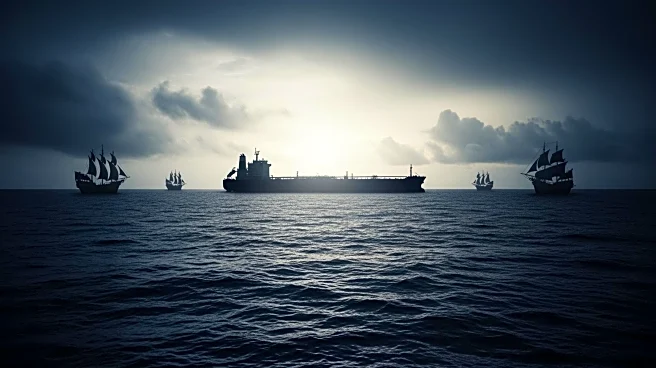What's Happening?
A gasoline tanker named Hellas Aphrodite was seized by attackers off the coast of Somalia, marking the first commercial ship hijacking in the region in over a year. The attackers, suspected to be Somali pirates,
used machine guns and rocket-propelled grenades to board the Malta-flagged vessel. The crew of 24 managed to lock themselves in the ship's citadel during the attack, and all are reported safe. The incident follows a series of recent pirate attacks in the area, attributed to Somali pirates who have been increasingly active due to regional instability.
Why It's Important?
The resurgence of Somali piracy poses significant threats to international shipping routes, particularly those passing through the Horn of Africa. This area is crucial for global trade, and increased piracy could lead to higher shipping costs and insurance premiums, impacting the global economy. The attack highlights the need for continued international naval patrols and cooperation to ensure maritime security. The incident also underscores the broader geopolitical instability in the region, exacerbated by conflicts such as the Yemen crisis.
What's Next?
International maritime forces, including the European Union's Operation Atalanta, are likely to increase their presence in the region to deter further pirate activities. Shipping companies may need to reassess their security measures and routes to avoid high-risk areas. The incident may prompt discussions among international stakeholders on enhancing collaborative efforts to combat piracy and stabilize the region.
Beyond the Headlines
The resurgence of piracy off the Somali coast could have long-term implications for regional security and economic development. It may affect local fishing communities and economies reliant on maritime trade. Additionally, the situation raises ethical concerns about the safety and welfare of seafarers operating in high-risk areas.











